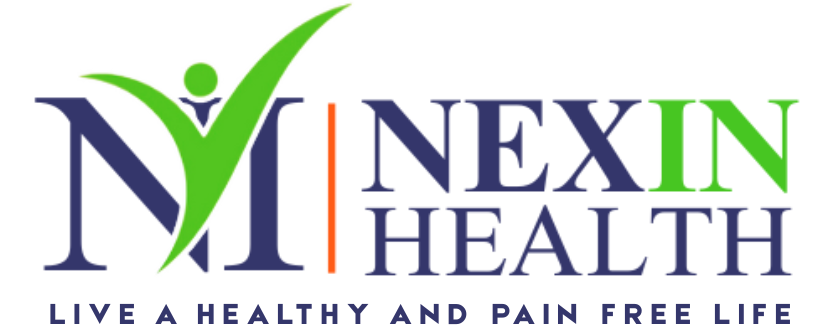Hypertension Treatment in Noida
Get effective hypertension treatment in Noida at NexIn Health Clinic. Our expert team provides personalized care, advanced diagnostic tools, and comprehensive lifestyle guidance to help you manage high blood pressure and improve your overall health. Schedule your consultation today!
Book your Appointment Now
Book AppointmentWhat is High Blood Pressure (Hypertension)?
Hypertension, or high blood pressure, is a common medical condition where the force of blood against the artery walls is consistently too high. It often develops over many years and can lead to serious health issues if left untreated. Factors contributing to hypertension include poor diet, lack of physical activity, obesity, stress, and genetics. While many individuals with hypertension experience no symptoms, the condition can silently damage blood vessels and vital organs like the heart, kidneys, and brain.
Long-term uncontrolled hypertension increases the risk of heart disease, stroke, and kidney failure. Managing hypertension typically involves lifestyle changes such as regular exercise, a balanced diet low in sodium, and maintaining a healthy weight.
In some cases, medication is necessary to help regulate blood pressure and prevent complications. Regular monitoring and medical guidance are key to managing the condition effectively.
What is considered high blood pressure?
High blood pressure, or hypertension, is typically defined using the following categories established by health organizations like the American Heart Association (AHA):
- Normal: Systolic less than 120 mm Hg and diastolic less than 80 mm Hg (e.g., 119/79 mm Hg)
- Elevated: Systolic 120-129 mm Hg and diastolic less than 80 mm Hg
- Hypertension Stage 1: Systolic 130-139 mm Hg or diastolic 80-89 mm Hg
- Hypertension Stage 2: Systolic 140 mm Hg or higher or diastolic 90 mm Hg or higher
- Hypertensive Crisis: Systolic over 180 mm Hg and/or diastolic over 120 mm Hg, requiring immediate medical attention.
Regular monitoring and consultation with a healthcare professional are important for those in the elevated or hypertensive ranges.
What are the signs and symptoms of high blood pressure?
High blood pressure, or hypertension, is often called a “silent killer” because it typically does not present noticeable symptoms. However, when symptoms do occur, they may include:
- Headaches: Persistent headaches, especially in the morning.
- Dizziness or Lightheadedness: A feeling of faintness or imbalance.
- Nosebleeds: Frequent or unexplained nosebleeds.
- Shortness of Breath: Difficulty breathing during normal activities or at rest.
- Chest Pain: Unusual discomfort or pain in the chest.
- Fatigue: Feeling unusually tired or fatigued.
- Visual Changes: Blurred vision or other changes in eyesight.
Most people with high blood pressure experience few, if any, symptoms, which is why regular monitoring is essential for early detection and management. If symptoms do arise, it’s crucial to seek medical advice.
What are the types of high blood pressure?
High blood pressure, or hypertension, can be categorized into several types based on its cause and characteristics:
- Primary (Essential) Hypertension: This is the most common type, accounting for about 90-95% of cases. It develops gradually over many years and typically has no identifiable cause. Genetic factors, poor diet, lack of exercise, and stress can contribute.
- Secondary Hypertension: This type is caused by an underlying condition or medication. It can develop suddenly and often results from issues like kidney disease, hormonal disorders, or the use of certain medications (e.g., birth control pills, cold medications).
- Isolated Systolic Hypertension: Common in older adults, this type is characterized by an elevated systolic pressure (the top number) while the diastolic pressure (the bottom number) remains normal. It often results from the stiffening of arteries due to aging.
- Malignant Hypertension: This is a severe form of hypertension that develops rapidly and can cause significant damage to organs. It is characterized by extremely high blood pressure (typically over 180/120 mm Hg) and may lead to complications like heart failure, kidney damage, or stroke.
- Resistant Hypertension: This type occurs when blood pressure remains high despite the use of multiple antihypertensive medications. It may indicate an underlying health issue or poor adherence to treatment.
Understanding the type of hypertension is crucial for effective management and treatment. Regular monitoring and consultation with a healthcare professional are essential.
What Causes Hypertension?
Primary hypertension does not have a specific, identifiable cause; rather, it arises from a combination of various factors. Common contributors include:
- Unhealthy dietary habits, particularly those high in sodium.
- Insufficient physical activity.
- Excessive alcohol consumption.
In contrast, secondary hypertension has at least one identifiable cause that healthcare providers can determine. Common causes of secondary hypertension include:
- Certain medications, such as immunosuppressants, nonsteroidal anti-inflammatory drugs (NSAIDs), and oral contraceptives.
- Kidney disease.
- Obstructive sleep apnea.
- Primary aldosteronism (Conn’s syndrome).
- Recreational drug use, including amphetamines and cocaine.
- Renal vascular diseases, which impact blood flow in the arteries and veins of the kidneys, with renal artery stenosis being a common example.
- Tobacco use, including smoking, vaping, and smokeless tobacco.
What Are the Risk Factors for High Blood Pressure?
Several risk factors can increase your chances of experiencing high blood pressure, including:
- Having family members with hypertension, cardiovascular disease, or diabetes.
- Being over the age of 55.
- Identifying as Black.
- Suffering from certain medical conditions, such as chronic kidney disease, metabolic syndrome, obstructive sleep apnea, or thyroid disorders.
- Being overweight or obese.
- Leading a sedentary lifestyle.
- Consuming high-sodium foods.
- Using tobacco products.
- Drinking excessively.
What are the treatments for high blood pressure?
Treating high blood pressure (hypertension) typically involves a combination of lifestyle changes and medication. Here’s a breakdown of the main treatment options:
Lifestyle Changes
- Dietary Adjustments: Follow the DASH (Dietary Approaches to Stop Hypertension) diet, which emphasizes fruits, vegetables, whole grains, and low-fat dairy while reducing sodium intake.
- Limit processed and high-sugar foods.
- Regular Exercise: Aim for at least 150 minutes of moderate aerobic activity per week, such as walking, cycling, or swimming.
- Weight Management: Losing even a small amount of weight can significantly lower blood pressure.
- Limit Alcohol Consumption: Moderation is key; for most adults, this means up to one drink per day for women and up to two drinks per day for men.
- Quit Smoking: Tobacco use raises blood pressure, so quitting can improve overall heart health.
- Stress Management: Engage in relaxation techniques such as meditation, deep breathing exercises, or yoga.
Regular Monitoring
Regular blood pressure checks are essential to assess the effectiveness of treatments and make necessary adjustments. Consult with a healthcare professional to determine the best treatment plan tailored to individual needs and health conditions.
Why Choose NexIn Health Clinic For Hypertension Treatment in Noida?
Choosing NexIn Health Clinic for hypertension treatment in Noida offers several advantages:
- Expertise and Specialization: The clinic boasts a team of experienced healthcare professionals who specialize in hypertension management, ensuring patients receive knowledgeable and effective care.
- Comprehensive Care: NexIn Health Clinic provides a holistic approach to hypertension treatment, combining lifestyle modifications, dietary guidance, and personalized medication plans tailored to individual needs.
- Advanced Technology: The clinic is equipped with state-of-the-art diagnostic tools and technologies, allowing for accurate blood pressure monitoring and comprehensive assessments of overall cardiovascular health.
- Patient-Centric Approach: NexIn prioritizes patient comfort and education, fostering open communication between healthcare providers and patients. This ensures that patients are well-informed about their condition and treatment options.
- Multidisciplinary Team: The clinic collaborates with nutritionists, fitness experts, and lifestyle coaches to address all aspects of hypertension management, promoting long-term health and wellness.
Book An Appointment With Us
Experience top-quality healthcare at NexIn Health Clinic. Schedule your appointment with our expert team today for personalized and compassionate medical care. Book now to prioritize your health and well-being!
Get Appointment With Nexin health
Choose Nexin healthy For Heart
Treatments!
- TAVI/TAVR
- Heart Surgery
- ASD/VSD/PDA Device
- Device Closure
- Angina Treatment
- Heart Failure
- Heart Attack
- Chest Pain
- Hypertension
- Heart Diseases
- Heart Holes Surgery
13 Years of Experience
Our clinic has a rich history of delivering quality care, backed by over a decade of expertise in the field.
25,000 Patients Treated
We have a proven track record of successfully treating a diverse range of patients, demonstrating our commitment to effective and personalised care.
Non-Invasive Treatments
We specialise in advanced, non-invasive treatment options that focus on your well-being without the need for surgical procedures.
Frequently Asked Questions on Hypertension Treatment in Noida



